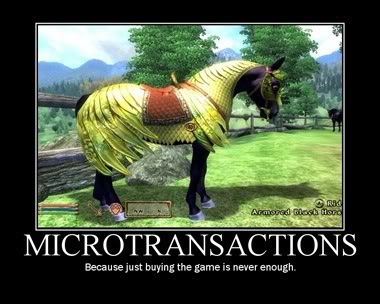This post has not been edited by the GamesBeat staff. Opinions by GamesBeat community writers do not necessarily reflect those of the staff.
Success is a relative word and is measured in many different ways. In the world of gaming, selling 2 million copies of a game used to be a blanket success story, but somewhere along the line that has changed. If you pay attention to gaming news, selling millions is no longer enough to sustain big budget companies in today's gaming climate. There are quite a few instances of this ringing true, with the most glaring being the recent Kingdoms of Amalur debacle with 38 Studios and Big Huge Games, while another comes in the form of a statement made by Dead Space publisher Electronic Arts stating "Really you need an audience size of around 5 million to continue to invest in an IP such as this". No doubt budgets of games have skyrocketed exponentially and instances like this are more and more frequent, but budget breakdowns is not what I want to cover in this blog.
Not a new concept, but microtransactions have seen big success in web based and free to play gaming models. They're a proven stream of residual income and at lower price points it makes them much more appetizing to the consumer. Big budget studios have seen this and are beginning to adopt this policy with alarming frequency. Selling millions is all well and good, but if you can continue to profit from your installed base with a trickle effect, that makes a lot of sense. Couple that with larger downloadable content bundles that expand the game and you have a financial strategy that can sustain an IP well beyond initial retail sales. This goes hand in hand with almost every major release these days having a multiplayer option tacked on to their big releases and sequels. Single player models allow the larger DLC chunks to be purchased and the multiplayer portion opens the doors for microtransactions in the form of instant gratification and advancement in game for modest price points. Want proof? Bioware has stated anonymously that they have had surprising success with their in store system for multiplayer. In game currency is earned through completing matches, but for a small price players can purchase packs at various price points to unlock better load outs and classes to play as. Hand over fist was the terms used in the money they are making. Diablo 3 recently introduced their real money auction house and Uncharted 3's new patch this week just introduced purchasable options to their multiplayer game. These are just a few examples of what is becoming a must have for developers to include in their games and with teams getting even bigger and development costs rising higher with the new consoles on the horizon, I guarantee this is something that will be included whenever possible in larger budget games moving forward.
Faced with this future comes the mixed emotions in relation to it. Consumers are already feeling the drain on their wallets and developing negative emotions regarding constant fleecing from our respective online stores. Many accuse companies of purposely cutting finished content from games to sell to us separately. Be it an extra character or new costumes, I understand the feelings in regards to this, but there can be a silver lining here. Gamings fans worldwide have lauded this generation of consoles for taking less chances with new IP's and pushing sequel after sequel out the door. While it's difficult to deny this notion, consumers should know that with the added residual income coming in from microtransactions, publishers and developers may be more inclined to take chances on new ideas and bring them to market.
This is all a slippery slope to be sure, but I felt the need to share my thoughts on the future with so many projecting the doom days of gaming being upon us.
What do you think of microtransactions in your games? Are you unhappy about having multiplayer options in every new games you buy? Share your comments below.


